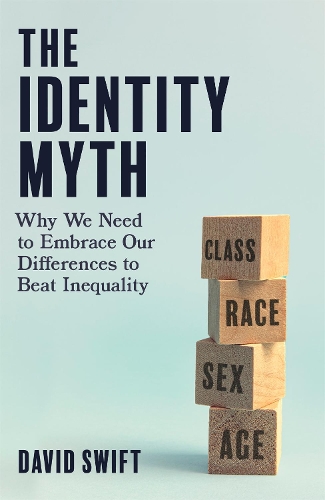
The Identity Myth: Why We Need to Embrace Our Differences to Beat Inequality
(Paperback)
Available Formats
Paperback
Published: 9th July 2023
Paperback
Published: 22nd February 2022
Hardback
Published: 30th August 2022
Publishing Details
The Identity Myth: Why We Need to Embrace Our Differences to Beat Inequality
By (Author) David Swift
Little, Brown Book Group
Constable
22nd February 2022
United Kingdom
Classifications
Tertiary Education
Non Fiction
320.011
Physical Properties
Paperback
320
Width 152mm, Height 232mm, Spine 30mm
420g
Description
2021 saw the rise of anti-racism, as white people sought to be better allies to people of colour. However, well-meaning white activists have unknowingly been perpetuating the very ideas they claim to be fighting against.
NeoOrientalism is an exaggeration of racial difference, and something that many activists are unconsciously promoting. In this rousing and invaluable read, David Swift urges his fellow white activists to reflect on their behaviour, revealing how our well-meaning language and political arguments are feeding NeoOrientalism and further widening the chasm of racial inequality.Reviews
Swift persuasively argues that economic and technological trends have amplified the obsession with identity... [He] makes a convincing argument * The Times *
Swift makes a compelling case against the preoccupation with different identities of minorities, especially on the left, as he does in favour of greater focus on what unites rather than divides people in diverse societies like ours. And he offers numerous, convincing illustrations of how internally diverse in outlook, values and interest are those of the same class, colour, gender and age-group. * Jewish Chronicle *
A fun and clever book * Spiked *
Author Bio
David Swift is a historian and writer based in London who specialises on the history and contemporary politics of the British Left, in particular in relation to race, class, gender and popular culture. He has researched and taught at several universities in the UK and abroad. His first book, A Left for Itself, was released by the radical publisher Zero Books in 2019.
Swift has written on the state of the Left for a variety of traditional and digital media including The Times, Independent, LabourList, Fabian Review, Progress Online, Spectator, Jewish Chronicle, UnHerd, and The Critic.